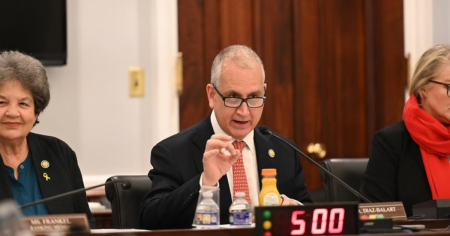Cuban-American congress members Mario Díaz-Balart, Carlos Giménez, and María Elvira Salazar have expressed their support for the young Cuban university students who declared an academic strike in response to ETECSA’s price hike.
"The United States stands in solidarity with the brave students and the Cuban people who are peacefully protesting against the oppressive and corrupt regime in Cuba," wrote Díaz-Balart and Giménez on X, accompanying the text with a message from both of them from Washington.
“Once again, the Cuban people are showing their opposition to the regime. Now it is the students in the universities. They need to know that they are not alone. We stand with you”, said Mario Díaz-Balart.
"The moment, the day of freedom is approaching because the Cuban people are saying enough is enough, we will no longer tolerate the garbage that has taken over the island for almost 70 years," he added.
Carlos Giménez, for his part, reiterated that Cuban-American congress members support what is happening in Cuba.
“We are with you, this is the moment of freedom. We are with you, we are with the Cuban people, who deserve freedom and democracy,” he said.
Giménez emphasized that this is a regime “that cannot maintain electricity, that does not provide food to its people, that does not provide medicine to its people, and that is now trying to increase communication means by 800 percent, yet despite this, the regime has over 500 million dollars in its pockets.”
“They are bandits. They have already destroyed the island. It’s time, enough already, they need to go so that the Cuban people can reach their potential as a country and for that they need freedom and democracy, we are with you. We will always be with you fighting for freedom and democracy in Cuba,” concluded Giménez.
María Elvira Salazar, for her part, retweeted the video where Cuban university students from the Faculty of Mathematics and Computer Science at the University of Havana warn that the class strike that began on June 4 will continue until their demands are met.
“Students of the University of Havana continue the strike following the brutal rate hike imposed by the regime. The Cuban youth are losing their fear and setting an example for the entire island,” he wrote.
Next, María Elvira issued a warning: "The regime's time is running out. We are watching them—and this time, there is a strong leader in the White House on the side of the Cuban people. No more dictatorship, freedom now!"
The rising wave of opposition to ETECSA's rate hike has escalated to a new level of confrontation within the student movement itself.
On June 3rd, the Faculty of Philosophy, History, Sociology, and Social Work (FEU-FHS) of the University of Havana issued an unprecedented statement in which it called for the immediate resignation of the national president of the Student Federation (FEU), Ricardo Rodríguez González, citing his inability to represent the interests of the student body during the current crisis.
The students also reported a lack of clear responses from the company’s management following a meeting with university authorities, and demanded the complete revocation of the measures or, at the very least, the removal of the 360 CUP limit for monthly top-ups.
Despite the position of different faculties, UH issued an official statement in which it assured that it will not allow interruptions in its teaching processes, clearly referring to the academic strike called by students of the Faculty of Mathematics and Computing, and reaffirmed its unconditional support for the Communist Party of Cuba (PCC).
While other faculties continue to join the opposition to the fee increase and critical voices are rising both within and outside the University of Havana, the national leadership of the FEU is facing an unprecedented crisis of authority and trust.
The future of this confrontation is still uncertain, but one thing has become clear: the new generation of students is willing to defend their rights and their voice, even if that means questioning those who have spoken on their behalf until now.
Filed under:
